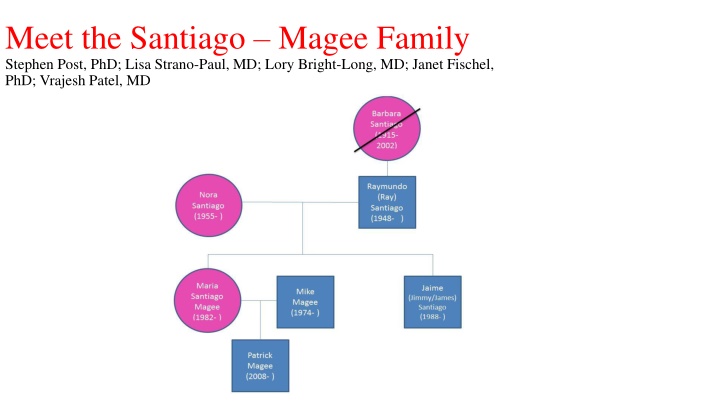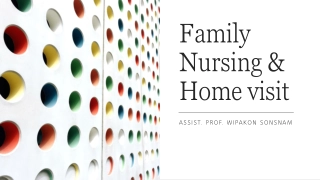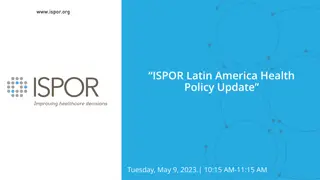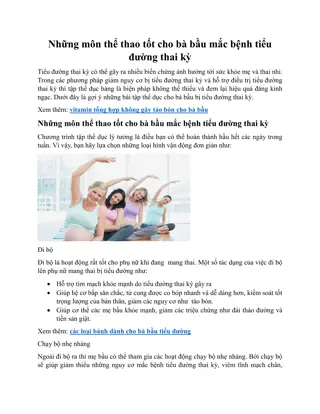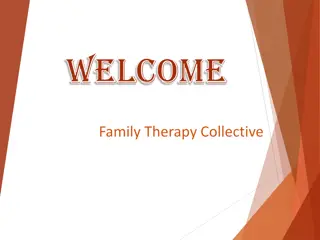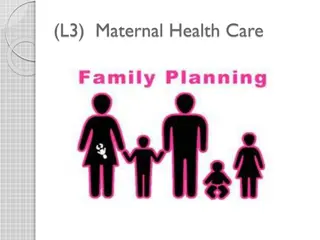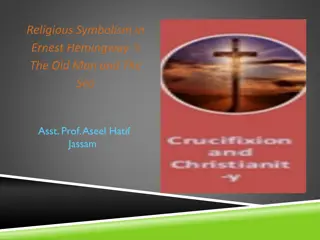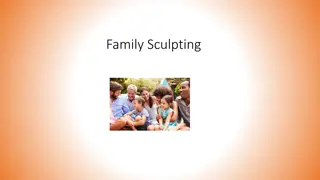Meet the Santiago Magee Family and Their Health Challenges
The Santiago Magee family comprises members facing various health issues such as Alzheimer's disease, depression, autism spectrum disorder, COPD, and substance abuse. This diverse family deals with medical conditions requiring specialized care, highlighting the importance of support systems and healthcare interventions tailored to individual needs.
Download Presentation

Please find below an Image/Link to download the presentation.
The content on the website is provided AS IS for your information and personal use only. It may not be sold, licensed, or shared on other websites without obtaining consent from the author.If you encounter any issues during the download, it is possible that the publisher has removed the file from their server.
You are allowed to download the files provided on this website for personal or commercial use, subject to the condition that they are used lawfully. All files are the property of their respective owners.
The content on the website is provided AS IS for your information and personal use only. It may not be sold, licensed, or shared on other websites without obtaining consent from the author.
E N D
Presentation Transcript
Meet the Santiago Magee Family Stephen Post, PhD; Lisa Strano-Paul, MD; Lory Bright-Long, MD; Janet Fischel, PhD; Vrajesh Patel, MD
Family Member Name (age in yrs) Raymundo (Ray) Santiago (66) Medical Conditions Alzheimer disease Psychosocial Issues/ HOT TOPICS End of life care; ethical decision making; law and medicine; medical genetics; nutrition; medical genetics Comments Genetics of disease, caregiving, progression through stages [Barbara, his mother, deceased age 87 after protracted AD) Nora Santiago (59) Depression Stress and depression in relation to certain relocations; complementary and alternative medicine; Disease based and the alternative/complementary medicine angle Obesity Hypertension Diabetes Maria Santiago Magee (32) Gestational diabetes mellitus Disease prevention; women s health; Attends Overeaters Anonymous (OA), a 12- step program; son Patrick (6) has an autism spectrum disorder Overweight (BMI 29) Nutrition; Pre-diabetic Community resources Mike Magee (40) COPD Occupational health; health care financing; health surveillance strategies; health policy A first responder fireman at 9/11, Mike is anxious about his susceptibility to cancer PTSD Tobacco Addiction Patrick Magee (6), son of Maria and Mike Magee Autism spectrum disorder, Level 2 severity Behavioral sciences; epidemiology; chronic care; communication skills; diagnosis of disorder; care and healthcare of the disabled; role of social service agencies; healthcare financing Patrick receives ABA support at home and enjoys stays at the St. Charles Maryhaven Community for Children with Autism Jaime (Jimmy/James) Santiago (26), son of Raymundo and Nora Santiago Substance abuse/alcoholism Drug and alcohol abuse; community health; Professionalism; James is a recovering alcoholic with PTSD who is treated at Northport VA and attends AA meetings daily PTSD VA resources Abnormalities of mood
Placement in Current Curriculum content Issues Time 1 (infants and children) Patrick (Autism) Introduce the Santiago Family here once again, regarding Patrick as a 6-year-old with ASD. J. Fischel gave a 20-minute lecture on ASD this past year and will speak with Dr. Granek about next year. There was a panel of parents. Medicine in Contemporary Society Raymundo (Alzheimer s Disease) Session on AD including autonomy and consent/human subjects, as part of a set of ethical issues following the chronology of AD from diagnosis to death (SGP) Dr Post conducts lecture/discussion of human subjects research ethics and can integrate issues re consenting/conducting research re Raymundo, along with a broader overview of ethical issues as they arise over the course of the illness. Three 4-week selectives: (1) Clinical ethics of dementia & autism/ SGP & J Fichel (2) 9/11 responders/B Luft
Development Over Time For example, we can follow Raymundo from genetic risk and diagnosis through end of life. Topics might include: ethnic diversity and interpretations of dementia/self-identity, diagnostic testing including family history and genetics (risk and causative), breaking the news to patient and family, participation in research, restrictions on driving, pharmacology, music & memory, advance planning, behavioral issues in the moderate stage, decisions around life sustaining treatments including insulin, application of palliative care, use of feeding PEGs, hospice and end of life Possible Yr. 4 Selective on the bio-psycho-social-ethical aspects of the Santiago Family
